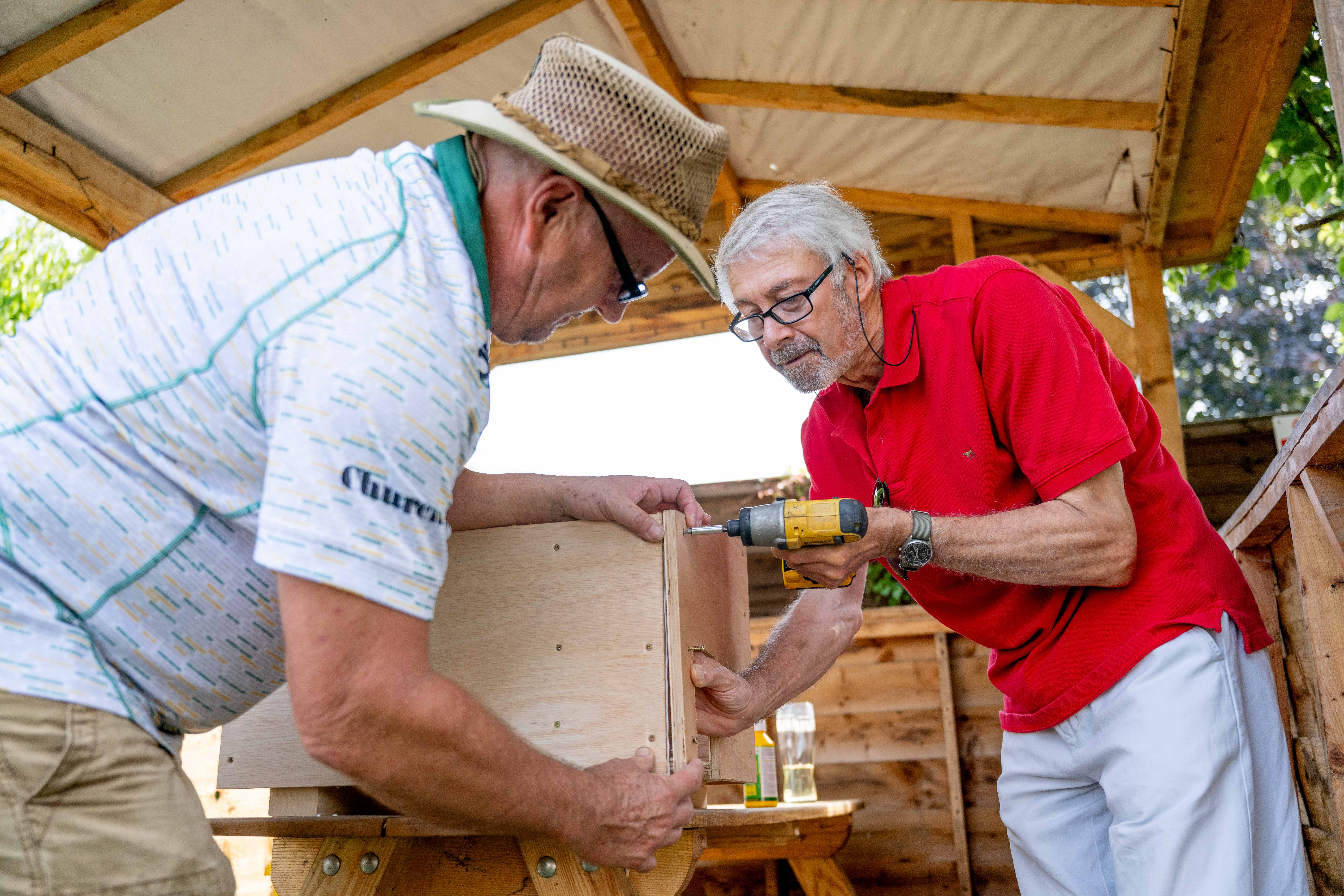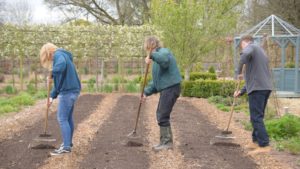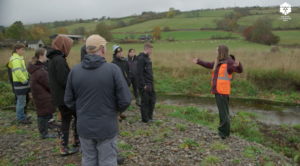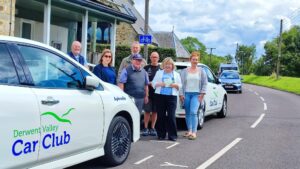
Supporting Rural Communities
Expressions of interest are now closed!
Our new UK-wide grant programme
This new differentiated funding will support transformative, community-led initiatives across the UK, unlocking the huge potential for positive change in rural communities. Our aim is to support innovative solutions that will “power up, not prop up” communities, inspiring change and encouraging economic vibrancy.
Organisations can apply for grants of up to £25,000 over a period of 24 months to deliver activities along the themes of:
- Keeping young people in the countryside
- Powering up rural communities
- Increasing environmental sustainability
- Building emergency resilience in rural areas.
Please note, applications from Cumbria and Northumberland will not be accepted in this round due to our recent joint programme focused on these counties.
Guidance:
- Expression of Interest guidance.
- Full proposal guidance (for organisations which are successful in the expression of interest stage.)
- PDF copy of Expression of Interest questions (for reference only. All applications must be submitted online using the application link.)
- Our latest FAQs.
- Watch a recording of our recent webinar.
Grant details
Support will be focused on isolated rural areas where the activity is required due to a lack of alternative services. Projects must be community led and show that they actively listen to, understand and respond to the needs of their local community. We are also looking for community organisations that demonstrate one or more of the following characteristics:
- Working towards a long-term vision
- Facilitating collaboration/connectedness
- Demonstrating innovation.
Communities are invited to bid for funding that will create tangible change. This could be a project that generates a new income stream for the local community, or the delivery of training to develop skills opportunities for young people. It could also be activities to increase community awareness and engagement in the local environment, or an initiative to bring the community together to plan for the impacts of climate change.
The RCF is particularly seeking innovative solutions to the challenges facing rural areas. Is there a project that hasn’t been done before that could be replicated in other rural communities, helping to increase the scale of change?
You can view some of the previous projects we have supported along the above themes below.
Who can apply
This funding is available to community organisations, not individuals or private businesses. You can apply if your organisation has an income of less than £500,000 a year and is a:
- constituted voluntary or community organisation
- registered, exempt or excepted charity
- charitable incorporated organisation (CIO)
- not-for-profit company limited by guarantee
- community interest company (CIC)
- community benefit society
- co-operative society
Types of organisation we are unable to fund
Organisation types we are unable to fund include (but are not limited to):
- Care Farms or similar activities where the beneficiaries are drawn from a larger area than just the local community.
- Local Authorities, including Town and Parish Councils.
- Hospitals and Schools.
- Private companies, sole traders and individuals.
- Youth clubs.
- Organisations that look to make profits and share these profits out privately – including companies limited by shares, organisations without the right asset locks, or organisations that can pay profits to directors or shareholders.
- Organisations applying to more than one of our funds for the same project over the same period. This is because you cannot get duplicate funding for something we’re already funding you to do. It’s OK to apply to another programme if you’ve already had an unsuccessful decision though.
- Uniformed groups such as scouts, guides and sea cadets.
- Sports clubs and associations.
How to apply
We are open for applications from Friday 10th January 2025.
We have a two-stage application process. Initially, you will need to send a short video and complete a simple ‘Expression of Interest’ (EOI) form. These should let us know who you are, what you aim to do, why your project is needed and how it will help your community. You should also set out how the project meets our funding priorities.
View guidance on making a video submission here.
If we feel that your EOI is a good fit with our programme, we’ll invite you to take your proposal to the next stage, by sending us some more details in a full proposal.
Key dates
10th January 2025 – Open for Expressions of Interest.
21st February 2025 – Deadline for Expressions of Interest.
17th April 2025 – Shortlisted organisations are invited to submit a full application.
16th May 2025 – Deadline for full applications.
Successful applicants will be notified in late June/early July 2025.
Projects and costs we are unable to fund
- Projects taking place in Cumbria and Northumberland.
- Rent costs.
- Village hall and community asset renovation activities.
- Activities which involve capital work to buy or build, refurbish, extend or alter a property or other construction-related works. This includes:
- refurbishment
- retro-fitting
- extending buildings
- purchasing land or buildings
- creating a new building
- developing an external space like a community garden.
- Landscape-scale or nature recovery type projects.
- Planning permission/building regulations.
- Insurance costs.
- Activities taking place in a location where the purchase/rent agreement is not complete.
- Statutory requirements.
- Technical energy activities where a specialist funder might be more appropriate.
- Consumables including food, fuel or refreshments.
- Activities that replace government funding.
- Activities that benefit individuals, rather than the wider community.
- Lobbying activities.
- Things you’ve spent money on in the past and are looking to claim for now (retrospective costs).
- The topping up of organisation reserves.
- Activities where our contribution makes up less than 10% of the total cost of the activity.
- Activities that aim to promote a religion (we can fund religious organisations if their activity benefits the wider community and does not include religious content).
- Political activity/campaigning.
- Working capital – the liquid funds available to meet your daily business expenses.
- Activities where there may be other, more appropriate funders with a better understanding of the issue. For example, those dealing with:
- domestic violence
- migration
- dementia or elderly care
- healthcare or mental healthcare provision.
Example projects previously supported by the RCF
Black Mountains College, Brecon Beacons
 An innovative education institution based on Troed yr Harn Farm in Talgarth in the Brecon Beacons. Their work centres around climate action and adaptation, using nature as the classroom. The idea for the college arose from concerns around the impact of climate change on every community, including rural semi-isolated communities. They deliver community-based vocational training and short courses, work with local organisations to strengthen community provision and create new community spaces which are accessible to everyone.
An innovative education institution based on Troed yr Harn Farm in Talgarth in the Brecon Beacons. Their work centres around climate action and adaptation, using nature as the classroom. The idea for the college arose from concerns around the impact of climate change on every community, including rural semi-isolated communities. They deliver community-based vocational training and short courses, work with local organisations to strengthen community provision and create new community spaces which are accessible to everyone.
What we liked about it: BMC carried out wide consultation to determine which courses were most needed and works closely with other local organisations to strengthen community provision and facilitate economic clustering. Through their courses they also create new community spaces (orchards, woodlands, gardens, meadows) which are accessible to everyone and are aiming to establish a model circular economy which could be replicated in other communities across the UK.
Countryside Learning Scotland, Perthshire
 Countryside Learning Scotland (CLS) are an education charity working to meet the need for outdoor learning in secondary schools. Their project ‘Pathways to Rural Work’ aimed to address the severe shortage of job candidates across rural businesses by increasing career awareness and opportunities for young people in local high schools. The programme included awareness raising, specialist courses linked to the curriculum and local industries, hands on skills and work placements and training for local businesses to enable them to support young people in the workplace. They also delivered CPD training to teachers to equip them to teach rural skills.
Countryside Learning Scotland (CLS) are an education charity working to meet the need for outdoor learning in secondary schools. Their project ‘Pathways to Rural Work’ aimed to address the severe shortage of job candidates across rural businesses by increasing career awareness and opportunities for young people in local high schools. The programme included awareness raising, specialist courses linked to the curriculum and local industries, hands on skills and work placements and training for local businesses to enable them to support young people in the workplace. They also delivered CPD training to teachers to equip them to teach rural skills.
What we liked about it: An innovative project that aimed to address the disconnect between businesses, young people and the local environment. This project not only benefitted the young people involved, but also the local economy and community. It had clear scalability and replicability and a multi-faceted approach to addressing an identified need in the local community.
Grizedale Arts and The Farmer's Arms, Cumbria
 Grizedale Arts, in collaboration with the local community, turned an old pub into a rural hub creating a local space for creative and business projects to run as well as hosting training events and volunteer placements for local people.
Grizedale Arts, in collaboration with the local community, turned an old pub into a rural hub creating a local space for creative and business projects to run as well as hosting training events and volunteer placements for local people.
What we liked about it: This project reached a larger number of local people and demonstrated their impact through strong quantitative and qualitative evidence like survey results and testimonials from people using the hub. They went beyond simply purchasing the pub and with the support and involvement of the community turned it into a hub providing a vital range of services for local people.
Blackhall Mill Community Association, Tyne and Wear
 This project developed a how-to-guide and model for setting up their community electric vehicle car club, called a ‘car club in a box’, so that other communities can create their own. Building on research they have conducted, this innovation will accelerate the speed at which they can support the development of new clubs in other communities, decarbonise transport, improve accessibility and strengthen the sustainability of their own club for their community.
This project developed a how-to-guide and model for setting up their community electric vehicle car club, called a ‘car club in a box’, so that other communities can create their own. Building on research they have conducted, this innovation will accelerate the speed at which they can support the development of new clubs in other communities, decarbonise transport, improve accessibility and strengthen the sustainability of their own club for their community.
What we like about it: They created a model that can be replicated and shared with other rural communities and is highly innovative. As well as improving access to transport in their isolated community, the project is generating an income stream for the community through the sale of their model, ensuring the future long-term viability of the car club, helping to decarbonize transport, and reducing isolation and loneliness through their voluntary driver scheme. This organisation also demonstrates good collaboration and connectedness with others in their local area and identified a clear need for the project within their own community and further afield.
Holy Island 2025: Long-term vision and strategy, Northumberland
This project addressed the significant issues facing the Holy Island community by bringing together local residents to develop a strategy and long term vision for the area. Led by and for local people, this set out a plan for creating a sustainable and positive future where the community and island could thrive.
What we liked about it: The project involved setting up working group meetings for the community to get to know each other, helping create the building blocks for active governance and strengthening community cohesion. Information and evidence documented by the report has since led to successful applications for further funding to explore the feasibility and need for a community housing project and has provided a clear agenda for the island to decide on priority projects to implement and action, helping to secure their long-term sustainability.